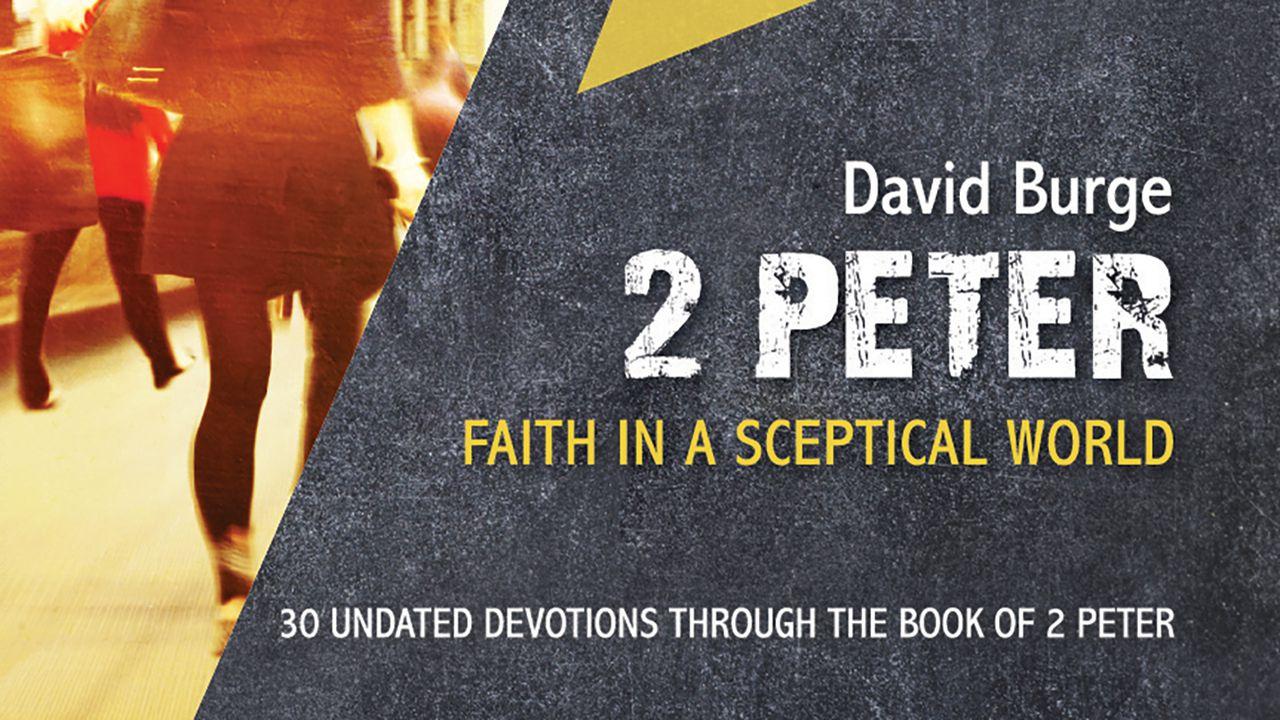2 Peter: Faith In A Skeptical World Exemplo

(focuses especially on v. 16)
Sadly, the history of the world is also a history of the distortion of God’s word. The serpent was the first recorded to twist God’s words, but countless false prophets and false teachers have deceived their multitudes since. God’s holy word is used and abused by many for their own ends, from well-meaning pastors and politicians through to military dictators and ruthless terrorists.
Peter has been speaking of the end times when Christ will return, judge and usher His people into His eternal kingdom (3:1–15), which is a message Paul also delivered. God had given Paul visions and revelations, and while caught up to paradise Paul heard ‘inexpressible things’ (2 Cor. 12:1–4), some of which he later struggled to express in his letters.
It is while writing about ‘these matters’ that Peter says Paul’s ‘letters contain some things that are hard to understand’ (v. 16). This is often the case when a Prophet (like Ezekiel) or an Apostle (like John) has seen grand visions that aren’t easily expressed by written words. Apocalyptic language and many analogies (‘it was like’, ‘He was like’) are used to express what they saw.
By nature this pictorial language leaves more room for interpretation than the simpler verses of Scripture. False teachers and cults ‘distort’ or twist parts of Scripture so that these Scriptures seem to say what the ‘ignorant and unstable people’ want them to say, which leads ‘to their own destruction’ (v. 16). Some knowingly, and others unknowingly, put false words in God’s mouth.
How can we do our best to avoid the same error when we read and share God’s word? Here are just a few safeguards. First, seek to convey what the author meant then before jumping to what you think it means now. Second, allow the rest of the book, Testament and Bible to test and correct your interpretation of any verse or verses (so, for example, Jesus’ and Paul’s teaching should not clash with your interpretation of Daniel). Third, if there is a main thrust to the text, focus on that thrust so that you keep the main thing the main thing (for example, concentrating on the point of the parable rather than the details used to get that point across). Fourth, and lastly, when you share God’s word, aim to clearly, faithfully explain and apply that portion of God’s word, rather than starting with your own message and then choosing a text to help you say what you want to say (so in a study group you could work chapter by chapter through Mark or Romans, for example, rather than preferring your own curriculum).
Reflection
What are some false teachings that you have heard, and how did they twist God's word? When have you been guilty of falsely interpreting God's word, to hear what you want to hear, or to say what you want to say?
Escritura
Sobre este plano

Your faith is precious! So often, though, we can feel weak, irrelevant and marginalized. Living in a skeptical world where truth is twisted and false teaching abounds isn’t easy. Peter knew about the challenges of living in such a world, but he also knew Jesus deeply, and he was utterly convinced of the importance of trusting Jesus and living for Him. Bible teacher David Burge delves into this letter and highlights relevant applications for our lives today. Be reminded of the truth about Jesus, motivated to continue to trust him and equipped for living in a skeptical world with these thirty undated devotions.
More
Planos Relacionados
Two Year Chronological

When One Person Says ‘Yes’ to God

Confidence in Christ

The Gratitude Muscle! A 5 Day Challenge

Praying for Your Future Husband: Trusting God With Your Heart

Sabbath in the Psalms

Jesus Is King: A Study on the Kingdom

The Power of the Gospel

Devotions for Deconstructors, Disciples, & Doubters by Dr. Jason Lee McKinney
